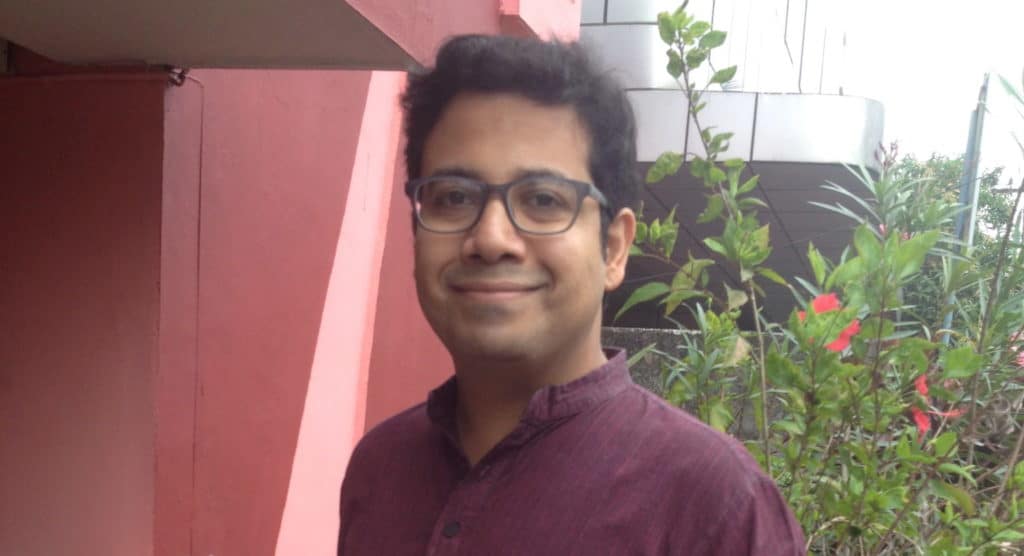It is the inexplicable charm of Kolkata that draws so many to the city that now has nothing new to offer. Author Kushanava Choudhury’s reason to go back to Kolkata after a Princeton degree was no different.
He undertook his ‘epic’ journey in Kolkata as a reporter, retracing the glorious years of the city and ended up penning his debut book, The Epic City, about the erstwhile city of palaces.
“I felt I had an unfinished business with Kolkata and that pulled me to the city ceaselessly,” he tells Little India. Choudhury’s family migrated to the United States in 1990 when he was about 12 years old. But it was the magnetic pull of Kolkata that made him come back to the city where he grew up, to intern while he was studying in Princeton University in 1998 and later to work in a newspaper.
“I went back to Kolkata to intern with the Statesman, a leading newspaper of the city those days. That really shaped my decision to come back and work in Kolkata later, as I felt I could not work anywhere else after my stint in the city,” he recalls.
Choudhury did not veer off into any other direction and came straight back to Kolkata to work at the same newspaper between 2001 and 2003. In his book, he talks about the odds of coming back while all his cousins were either fleeing the city or contemplating moves to settle abroad. “My relatives were taken aback with my decision to return to Kolkata, they said that the place had nothing to offer anymore, but I was determined to make my way back to the city,” he adds.
Kolkata’s merciless heat can be a huge drawback for those who are not used to it. It can make work a chore and the stay difficult. Choudhury braved it all for the love of the city. His book is full of memories about his media stint and feels that the experience has left an indelible mark in his life.
“The Statesman house, which is now close to being in ruins, was once a grand old mansion that housed the press and the editorial under the same roof,” he says. “I still remember the white liveries worn by the peons — some of whose chores was to incessantly polish the knob of the editor’s walking stick. Some of them were dedicated to the mission of carrying files from one desk to the other, all at the push of a button placed under our desks,” he laughs.
However, the declining job market and the political turmoil forced him to go back to the United States where he enrolled for a masters degree at Yale. One of his professors saw the glint in his eyes at the mere mention of Kolkata and suggested that he write a book on it. “The idea was quite appealing; besides I was more than willing to explore any idea that could lead me back to the city of joy,” Choudhury says.
Soon after he completed his PhD, he got a fellowship to research on Kolkata in 2010. That was the beginning of The Epic City. He finished writing the book in 2014 and after a slew of rejections by many publication houses, it was finally picked up by Bloomsbury Publishing. The book was launched in India and United Kingdom in August this year, and is coming out in the United States in January 2018.
“I have received a lot of appreciation from people who have read the book and some have told me that it is almost like fiction,” Choudhury adds. “All characters in the book are real people with real stories and as an author, I feel complimented when people write good things about it.”
The book, he says, is an expression of the multi-layered experiences that he gathered in Kolkata, whether it is the language, which to him is a breath of fresh air every time he lands in the city, or the pleasantries that he shares with acquaintances around the corner near his house.
His endeavor to trace the glorious years of Kolkata made him come to terms with the reality of the city. “There is so much banter about Kolkata and its people living in their past and their reluctance to come out of it,” he says, talking about how he feels quite comfortable with the present state that the city is in. “This is because I have lived only in the present and it is the present city that pulls me. I did make an effort to retrace the golden age of erstwhile Calcutta, the capital of the British regime, and found that there are multiple versions of this period in time.”
Choudhury has now found love in writing non-fiction novels, and currently divides his time between Delhi and Cochin. His next is based on the social transformation of Kerala and how the society in the state has come close to being an egalitarian set-up. “People in Kerala are aware of their surroundings,” he says. “They love their literature and cinema and that instantly drew me towards them.”
